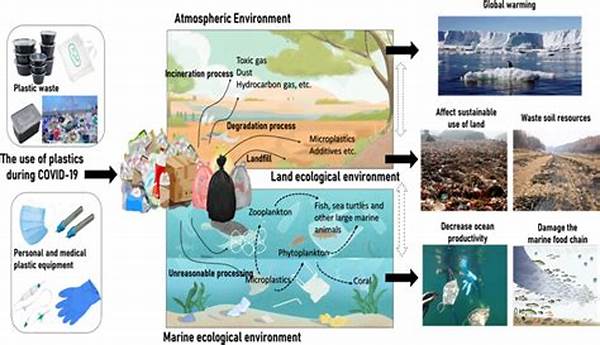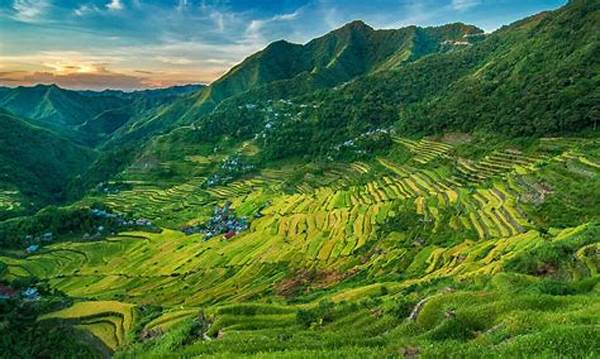A Tale of Troubled Bliss in Paradise
Imagine setting foot on a sun-drenched island, where vibrant flora and fauna entice your senses. The waves serenade the shoreline in a rhythmic dance, inviting you to explore the untouched beauty of Mother Nature. This is nature tourism at its finest—a promise of paradise that soothes the soul and rejuvenates the spirit. But lurking underneath this serene façade is a crisis threatening to unravel the very fabric of what makes nature tourism so enticing: plastic waste.
Read More : Bird Watching Spots In Natural Tourism Areas
Are you aware that plastic waste is more than just unsightly litter? It’s a catalyst for environmental disasters, sneaking its way into our oceans and ecosystems, choking marine life, and tarnishing natural wonders. The impact of plastic waste on nature tourism is more profound than a fleeting eyesore; it disrupts wildlife habitats, affects local economies reliant on tourism, and diminishes the allure of natural destinations worldwide. Grab your eco-conscious cape, and let’s embark on a journey to uncover the consequences and solutions to this pressing issue!
When Plastic Casts a Shadow over Paradise
Environmental Ruin: A Not-So-Secret Affair
The impact of plastic waste on nature tourism is not just an inconvenience; it’s a full-blown environmental affair. Picture this: stunning beaches littered with plastic bottles, wrappers, and debris, turning a once-pristine landscape into a miniature landfill. As you snap photos to capture your precious vacation memories, the intrusive presence of plastic waste serves as an unwanted photobomber, negating the allure of your picture-perfect destination.
Plastic waste wreaks havoc on local ecosystems, endangering wildlife and destroying habitats. Sea turtles and marine birds often confuse floating plastics for food, resulting in tragic consequences. Coral reefs, the jewels of the ocean, face severe degradation due to plastic pollution. Tourists longing for encounters with nature’s splendor are met with an altered, and often heartbreaking, reality.
Economic Ripple Effects: From Boom to Bust
The economic implications of plastic pollution are as direct as they are devastating. Nature tourism, a significant economic driver for many regions, faces a potential downturn due to deteriorating natural sites. As destinations become less attractive, the influx of tourists dwindles, leading to a ripple effect of lost revenue affecting local businesses, hotels, and tour operators. In places where the economy relies heavily on tourism, this downturn can spell disaster for communities and livelihoods.
Tourism and environmental preservation go hand-in-hand. Sustainable practices are not just a trend; they are a necessity for survival. The urgency to combat plastic waste is more pronounced than ever, as tourists and locals alike depend on nature tourism for both economic prosperity and ecological balance.
Turning the Tide: A Call for Action
The narrative doesn’t have to end here on a somber note. With awareness comes change, and with change comes action. The impact of plastic waste on nature tourism may seem overwhelming, but solutions are within reach. It’s time to channel our attention towards innovative strategies that empower individuals, communities, and corporations to combat plastic pollution.
Implementing sustainable waste management practices, promoting plastic-free travel options, and educating tourists on the importance of reducing their plastic footprint are crucial steps. By fostering a collective commitment to protecting our natural resources, we can ensure that nature tourism remains a cherished experience for generations to come.
Read More : Scenic Mountain Destinations For Nature Lovers
Breaking Down the Impact of Plastic Waste
Environmental Consequences: A Dive into Data
Economic Implications: Money Matters
Actions and Solutions: Paving the Path Forward
The Future Outlook: Restoring Nature’s Glory
Revitalizing Efforts for a Greener Tomorrow
As we reflect on the impact of plastic waste on nature tourism, it’s clear that the path forward demands a coordinated, global effort. Communities that rally together, governments that legislate with foresight, and tourists who travel with integrity all contribute to the restoration of natural beauty.
Knowledge is Power: Educating the Traveler
Education and spreading awareness are pivotal. When travelers understand the depth of the crisis and its direct impact on the places they cherish, they become more inclined to adopt sustainable practices. Through storytelling, testimonials, and creative marketing, awareness campaigns can attract attention and drive behavior change among travelers of all ages.
Harmonizing Nature and Tourism: A Symbiotic Relationship
Nature and tourism need not be adversaries. By advocating for practices that highlight the symbiosis between tourism and environmental stewardship, we create a sustainable model that benefits all stakeholders. Investing in eco-friendly solutions not only mitigates disaster but also enhances the tourist experience, offering destinations that are as proudly pristine as they are welcoming.
A Renewed Commitment: Together for the Planet
In conclusion, the impact of plastic waste on nature tourism is glaringly significant, affecting environments, economies, and experiences. Nevertheless, we possess the power to pivot towards a more harmonious relationship with nature. It requires collective action, informed by empathy and driven by passion. Every piece of plastic we refuse, every policy we endorse, every conservation effort we support gets us closer to a planet that continues to inspire awe and wonder for generations ahead.
The narrative remains clear: the next chapter is ours to write, one devoid of plastic pollution, and rich in natural splendor. As ambassadors of the Earth, it’s our duty to champion a sustainable future, one that safeguards our paradise while celebrating its unparalleled beauty. Let us ensure that our footprints in the sand leave no trace but memories, and that our journey to paradise is as pure as the destinations we long to preserve.


